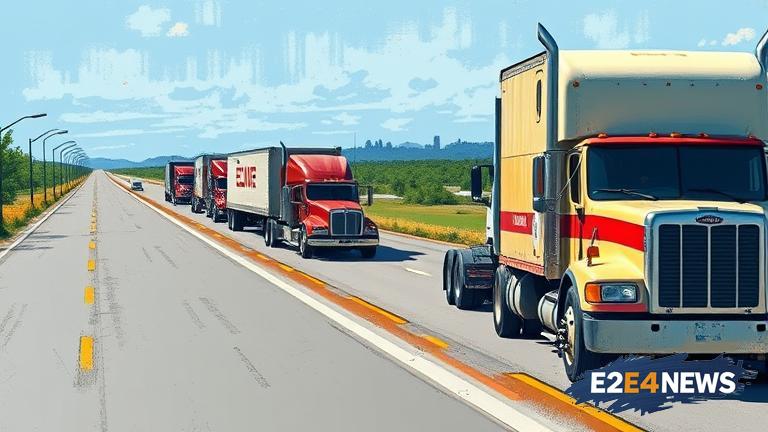Florida has recently taken a significant step in cracking down on immigrant truck drivers at its state border. The move is part of a broader effort to strengthen border security and enforce immigration laws. According to reports, the state has increased the presence of law enforcement personnel at border checkpoints, with a particular focus on inspecting commercial vehicles. This heightened scrutiny is aimed at identifying and detaining immigrant truck drivers who may be operating without proper documentation or authorization. The initiative has sparked a mix of reactions, with some praising the move as a necessary measure to protect national security and others criticizing it as an overly aggressive approach that could harm the economy. Proponents of the policy argue that it will help prevent illegal immigration and reduce the risk of human trafficking and drug smuggling. On the other hand, opponents claim that the measures could lead to increased delays and costs for the trucking industry, potentially disrupting supply chains and impacting the state’s economy. The American Trucking Associations has expressed concerns about the potential consequences of the policy, citing the already existing shortage of truck drivers in the country. Meanwhile, immigrant advocacy groups have denounced the move, arguing that it unfairly targets and stigmatizes immigrant communities. The policy has also raised questions about the role of state governments in enforcing federal immigration laws. Some experts argue that states have a critical role to play in supporting federal efforts to secure the border, while others contend that such measures can lead to confusion and inconsistencies in the application of immigration laws. As the situation continues to unfold, it remains to be seen how the new measures will impact the trucking industry, immigrant communities, and the state’s economy as a whole. The policy is part of a larger national debate about immigration reform and border security, with various states and the federal government exploring different approaches to addressing these complex issues. In recent years, Florida has been at the forefront of efforts to restrict immigration and enhance border security, with the state’s government implementing a range of measures aimed at reducing illegal immigration. The latest move is likely to be closely watched by other states and the federal government, as they consider their own approaches to addressing the challenges posed by immigration and border security. The economic implications of the policy are also likely to be significant, with the trucking industry playing a critical role in the state’s economy. As the policy continues to be implemented and refined, it will be important to monitor its impact on the industry and the state’s economy, as well as its effects on immigrant communities and the broader national debate about immigration reform. The situation highlights the complex and often contentious nature of immigration policy, with different stakeholders and interest groups holding strongly divergent views on the best way to address the challenges posed by immigration. Ultimately, the success of the policy will depend on its ability to balance competing priorities, including national security, economic growth, and the protection of human rights. As the debate continues, it is likely that the policy will undergo further refinement and adjustment, as policymakers seek to address the concerns and needs of different stakeholders. The policy has also raised questions about the potential for racial and ethnic profiling, with some arguing that the measures could unfairly target certain communities. In response to these concerns, state officials have emphasized the importance of ensuring that the policy is implemented in a fair and unbiased manner. The implementation of the policy is being closely monitored by civil rights groups and immigrant advocacy organizations, which are watching for any signs of discriminatory enforcement. As the situation continues to evolve, it will be important to ensure that the policy is implemented in a way that respects the rights and dignity of all individuals, regardless of their immigration status. The policy is a reminder of the ongoing challenges posed by immigration and border security, and the need for comprehensive and effective solutions that balance competing priorities and respect the rights and dignity of all individuals.
